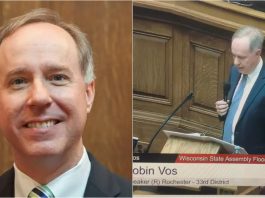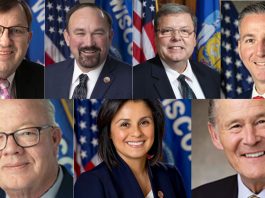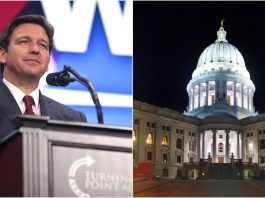By Noah Diekemper
Slogans like this are everywhere when housing policy is discussed.
Specifically, they embody what’s called “NIMBYism.”
The term “NIMBY” is short for “Not In My Back Yard.” It’s intended to be derogatory, and refers to people who pay lip service to things but oppose—often with government muscle—those same things being built near them. Sometimes that’s in reference to wind farms, slaughterhouses, or nuclear power plants, but often this term crops up in the context of new housing.
But this term packages a backwards way of thinking. The (for example) new housing being discussed is basically never in their back yard. It’s never destined for their actual property; instead, it is the property of other people that is being struggled over. NIMBY language is wielded by people appealing to the sanctity of property and freedom in an attempt to usurp the property rights and freedoms of others.
These “NIMBY” complaints loom large over the housing conversation. A survey of municipal employees conducted by WILL had several city planners citing NIMBYism as a chief driver of housing’s unaffordability: it obstructs new building and throttles supply. But the language, both of that term and in the rhetoric customarily used by NIMBYites, turns the facts of the debate on their head. NIMBYs appeal to personal property and rights, but echoing throughout their language is an effort to get government to control what belongs to other people.
This isn’t just rhetoric. This dominates the conversation surrounding local control and representative government across the nation.
For instance, the Washington Post ran a story last October about people in Montgomery County, MD (a bedroom community for professionals north of DC) were protesting proposed zoning changes with signs reading “Save Our Neighborhoods” and “Stop Rezoning Our Single-Family Homes.” But their single-family homes weren’t being threatened at all. The proposed plan could have permitted lots to hold single-family homes, or to hold denser structures like duplexes or triplexes. The protesting residents could have kept inhabiting their homes on their land the way that they were for as long as they pleased. Their entire umbrage was directed towards what other people might do with their land. This vote was not over any actual zoning change, but rather over updating the county’s general plan—“a framework for future plans,” in its own language.
The same story is underway in Franklin, WI, a well-off suburb of Milwaukee. There, a proposed subdivision has been hounded by citizens at common council meetings. One homeowner attempted to berate the city’s decision-makers into forcing the builders to incorporate greater distances between houses. At the time, the proposed setbacks would have been 90 inches. This man lectured the council, “If I was a six-foot guy, I could stand on my lot line, lay down, and touch my neighbor’s house. That’s 90 inches. That’s, in my mind, ridiculous.”
Again—this was neither his house, nor his neighbor’s house, in question. This was a proposal for a different neighborhood entirely, and he was haranguing the city’s council members to mandate that extra land be left undeveloped just so that the houses could be spaced further apart, according to what struck him as ridiculous or not. Yet, he suggested and spoke as though this decision was impacting his life and property.
NIMBYs might object that their concerns are relevant to their own property—often, they oppose new construction for fear that it would harm their property values in some way. Some of these concerns are valid, but overbroad: not wanting a strip club near a neighborhood with young children is a valid concern, but one that the government’s police power can address.
Some of these concerns are bad: wanting low crime by making it hard for anyone who isn’t wealthy to live nearby is an unjust and unworkable blueprint for society. And then some concerns are intrusive and invalid: every demand to make one’s neighbors’ houses farther apart, for example.
And, just to head off a typically American objection, it is indeed that resident’s right to have an opinion about someone else’s land, house, architecture, and everything else. But no one should have the right to transmute that third-party opinion into political power that forces those changes onto other people’s lives in matters of their property. Someone dictating their own will onto others in this fashion is entirely un-American.
Noah Diekemper is the Senior Research Analyst at the Wisconsin Institute for Law & Liberty.












